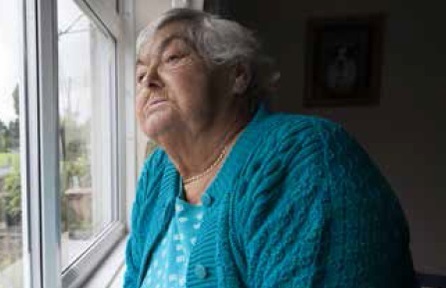Bus service cuts result in 'six-hour' trips for routine hospital appointments
A high number of older and disabled people are experiencing stress and pain on overcrowded buses to get to routine hospital appointments, due to the number of routes and services being cut in local communities.

Hours of travel are being spent in discomfort, with some people changing buses up to two or three times in one hospital journey.
It can take up to six hours for some journeys warns Age UK, and routine appointments are being cancelled because patients are finding the trip too stressful.
‘It’s a nightmare to change bus three times’
Rosanna, aged 65, told Age UK: “To get to my nearest hospital, just five miles away, the bus is hourly and rarely fits in with the appointment.
“So, I have to go two hours early, catch two buses, then walk or taxi the remainder of the way. An appointment there will take the entire day. I’ve refused appointments simply due to access.”
This story is familiar for many.
Subhash is 69 and has been diagnosed with Parkinson’s and diabetes and needs to attend regular hospital appointments to meet with his neurologist. Whilst he tried to apply for patient transport he was turned down because he didn’t live within the hospital’s catchment area.
Subhash relies on buses to get to hospital, and because he has Parkinson’s and has difficulty seeing, it’s not safe for him to travel independently. He said: “I’m forced to rely on my wife to get to hospital. We have to take three buses to get to my appointments.
“It’s a nightmare to change bus three times – it is very painful for me to walk, not just in my legs but also in my back. With the pain in my back and legs, I dread the journey to hospital.
“It takes me two and a half hours to get to hospital via the three buses. So, if I have an appointment at 10am, I have to leave the house at 7am.”

A recent survey from Age UK found that 41 per cent of people aged 65 and over (and nearly half of those aged 76 and over) live with a health condition which requires them to attend hospital appointments.
Of those who have been to a hospital appointment in the past 12 months, 26 per cent say it takes them or a loved one the majority of the day to get to and from hospital.
Fifteen per cent say they feel worse after hospital appointments than when they set out because of the stress involved in the journey.
The use of bus passes means that many older people prefer buses for travelling to hospital appointments, but with constant cuts to routes and services, it’s often the most stressful option.
Public transport in crisis
Early in 2017, The Campaign for Better Transport made over 100 Freedom of Information requests to local councils to get a full picture about recent bus cuts.
The findings of these requests, said the pressure group, ‘were deeply concerning’; funding for buses across England and Wales have been cut by 33 per cent since 2010, and by nearly £30 million in just the last year.
Over 500 bus routes were reduced or completely withdrawn in 2016 and 2017.
John Marshall, now retired, is from a rural part of Cornwall. He told the pressure group that he was fed up with cuts to bus services to his area.
As a result, he has now had to buy a car again, although he feels sorry for other older people who don’t have that option. He said: “Elderly people use the bus for going to the doctors and dentists, attending hospital appointments, shopping and visiting family and friends”.
He added: “Elderly people who no longer have a car really depend on bus services to maintain their independence. If villages are cut off, as is happening, elderly people will be more and more isolated.”
It is people like this, that live in rural areas, that are struggling the most to meet their appointments because of cuts to bus services.

They sometimes have to travel long distances to attend specialist appointments in a different catchment area, which means they are not usually entitled to transport provided by local hospitals.
They then have to catch various different buses as there isn't one route that will take them straight there. Many services are so infrequent that there is a long wait, often in the cold, between buses.
Trains are not usually a suitable alternative either; stations aren’t necessarily located near to homes, and crowded carriages and stations can be daunting for older people. Frequent delays are not uncommon as services are notoriously unreliable, depending on which train company runs the local service.
A ‘Government review is urgently required’
Age UK warns that the current situation is untenable, leading to extra costs for the NHS and social care.
Caroline Abrahams, charity director at Age UK, said: “As we grow older, our chances of having multiple health conditions requiring regular outpatient appointments increase. If older people cannot actually get to the hospital services they need, or have to endure long, painful and stressful journeys in order to access them, this translates into extra costs for the NHS, which we know is already stretched to the limit.
“A Government review of transport services is urgently needed to ensure that every hospital journey for an older person is comfortable, affordable, and gets them to their appointment in good time. That would make a big difference to older people and their families and to the NHS too.”
Through its ‘Painful Journeys’ campaign, Age UK is calling on people to write to their MP about the difficulties they have faced when travelling to hospital appointments.
Visit www.ageuk.org.uk/painfuljourneys for more information.
Latest Features News
 28-Nov-19
2019 Election: Labour pledges £10.8 bn for free personal care while Boris Johnson sidelines social care
28-Nov-19
2019 Election: Labour pledges £10.8 bn for free personal care while Boris Johnson sidelines social care
 18-Oct-19
Podcast: Wendy Mitchell and dementia: 'My biggest fear is not knowing who my daughters are'
18-Oct-19
Podcast: Wendy Mitchell and dementia: 'My biggest fear is not knowing who my daughters are'
 30-Sep-19
World's oldest diver aged 96 says 'never accept the fact you are getting old'
30-Sep-19
World's oldest diver aged 96 says 'never accept the fact you are getting old'
 27-Sep-19
Exclusive: Care minister backs care workers' call for time off to grieve and attend funerals
27-Sep-19
Exclusive: Care minister backs care workers' call for time off to grieve and attend funerals
 20-Sep-19
Podcast: Gyles Brandreth urges care workers to learn poetry with elderly
20-Sep-19
Podcast: Gyles Brandreth urges care workers to learn poetry with elderly